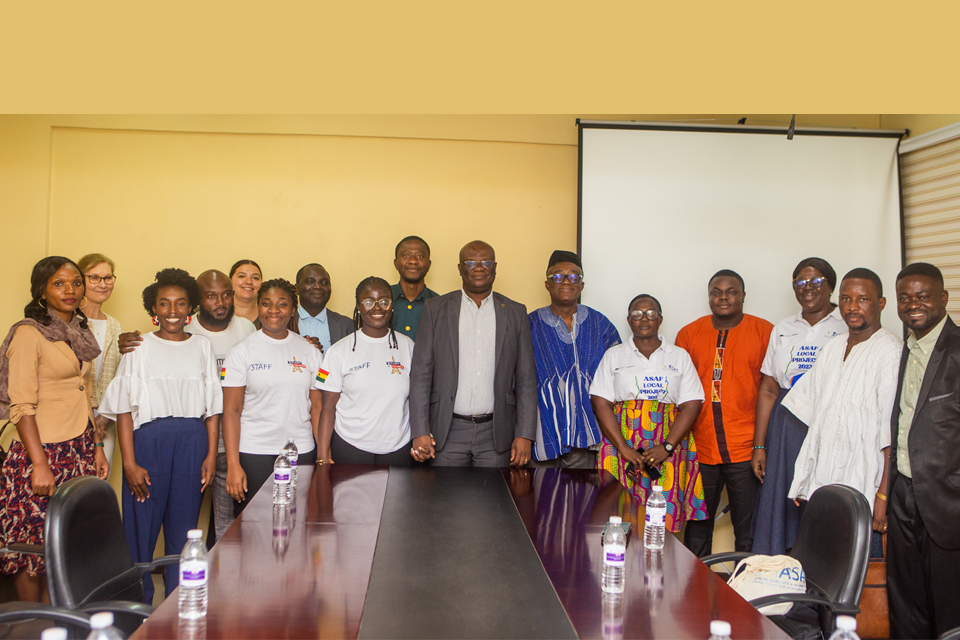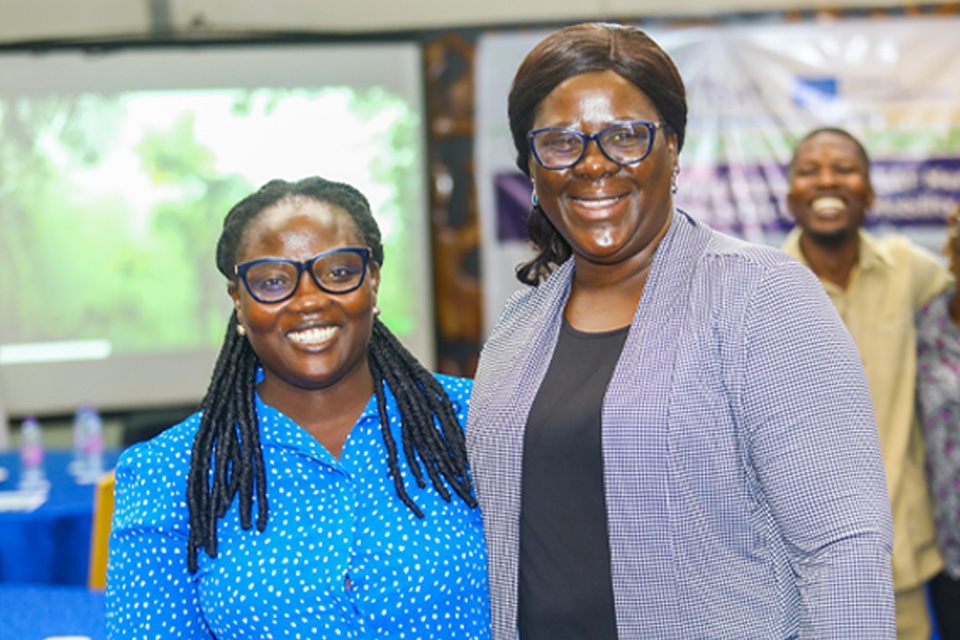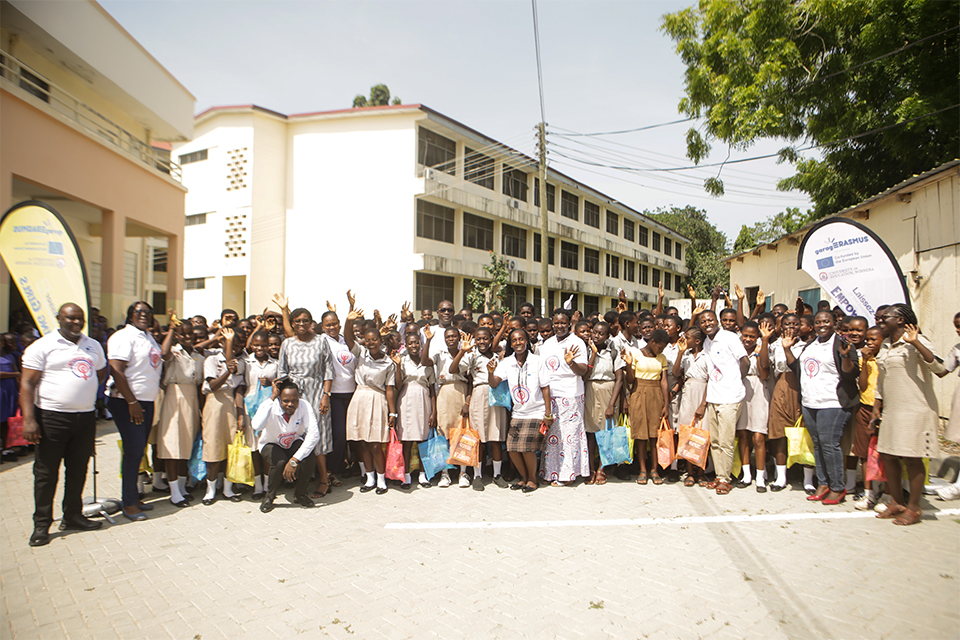UEW Scholar Leads ASAF Ghana NEURO Project for Green Skills

The University of Education, Winneba (UEW) hosted the African Students and Alumni Forum (ASAF) Ghana NEURO Project at the Elmina Beach Resort in the Central Region of Ghana.
The project, led by Dr. Charity Esenam Anor, a lecturer at the UEW and Ghana's Co-Ambassador of ASAF, convened thought leaders, past and present scholarship beneficiaries and educational stakeholders to exchange knowledge, foster networks and promote sustainable, future-ready skills among African professionals.

Dr. Charity Anor, who was awarded the competitive ASAF project grant, described the initiative as “a powerful platform for connection, collaboration and capacity building.” She emphasised the importance of African scholars and alumni remaining informed, empowered and proactive in addressing the evolving demands of both local and global contexts. She urged participants to engage fully with the topics, which included green skills for sustainability, writing successful grant proposals and strategies for effective alumni networking.

Dr. Nelly Adjoa Sakyi-Hagan, President of ASAF and a senior lecturer at the UEW, underscored the forum's mission of inclusivity, empowerment, transformation and sustainability. She noted the growing influence of African-led educational and professional mobility programmes facilitated by AU-EU partnerships including Erasmus+, Erasmus Mundus and the Intra-Africa Mobility Scheme.
Dr. Nelly Sakyi-Hagan traced ASAF’s rapid growth across 48 African countries and over 2,000 members, positioning it as a force for implementing the United Nations (UN) 2030 Sustainable Development Goals and the African Union (AU) Agenda 2063. “ASAF is a platform of changemakers committed to shaping the Africa we want,” she said, while encouraging more UEW staff and students to pursue AU-EU mobility opportunities.

Dr. Felix Donkor, former President of ASAF and UEW faculty member, highlighted the importance of aligning educational and professional pursuits with evolving European Union (EU) policies, particularly around digital citizenship, ethical media engagement and intercultural respect.
Dr. Donkor called on participants to see digital literacy not as a privilege but as a responsibility, especially in the fight against misinformation and data misuse. “Investing in digital citizenship education is essential for building a continent that can safely and confidently engage in the digital age,” he noted.

The opening remarks set the stage for a series of impactful presentations. Dr. Prosper Naah examined the increasing significance of green skills in sustainable development. Dr. Philip Siaw Kissi clarified the process of crafting successful grant proposals, offering practical insights for academics and development practitioners.

Dr. Esther Fobi Donkor energised participants by providing tools for building strategic networks and fostering effective collaborations. Meanwhile, Ms. Elizabeth Mang'eni shared her personal journey and strategies for excelling as an international student, inspiring many to pursue similar opportunities abroad.
The ASAF Ghana NEURO Project reaffirmed the vital role of inclusive, cross-continental alumni networks in shaping Africa’s future. It also underscored UEW’s continued leadership in educational innovation, global partnerships and capacity development. As the continent moves towards the UN 2030 Sustainable Development Goals and the African Union’s Agenda 2063, such platforms will remain critical in building a connected, skilled and empowered generation.













